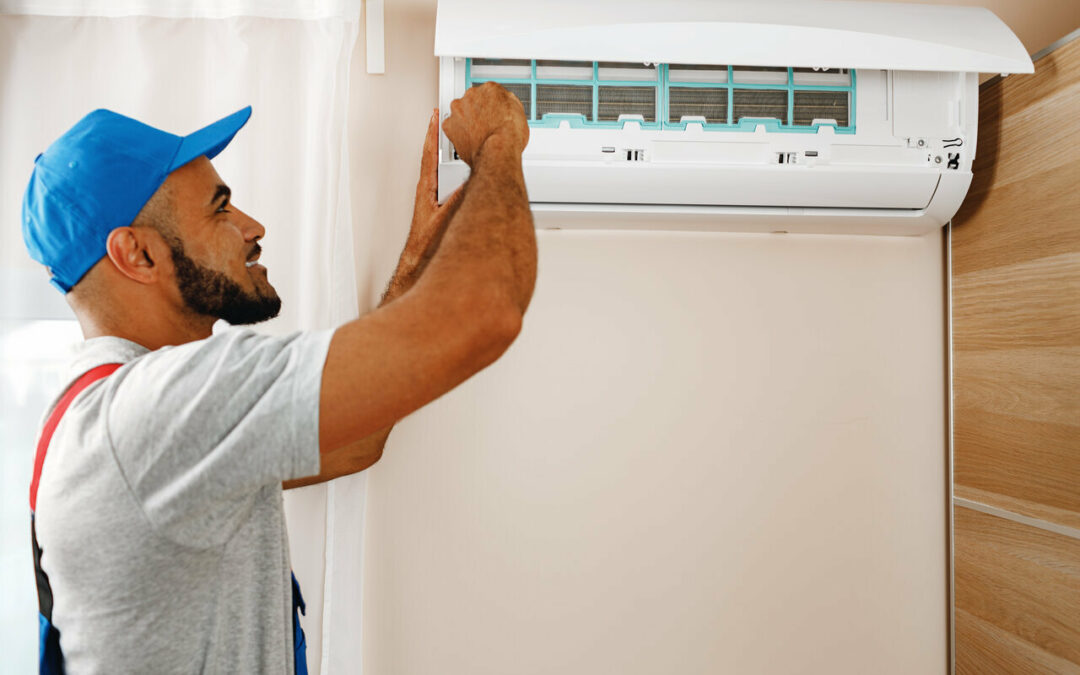Living in Brightwaters, you know how crucial a functional air conditioning system is during the hot summer months. When your AC acts up, it can quickly turn your comfortable home into a sweltering space. Understanding the common causes of AC problems helps you prevent issues before they escalate into costly repairs or system failures.
Several factors can cause your AC to malfunction. Dirty or clogged filters, refrigerant leaks, electrical control failures, and sensor and thermostat issues are just a few common culprits. Each of these problems can affect your system’s efficiency and lifespan. By paying attention to these signs and addressing them promptly, you can ensure your home remains cool and comfortable.
Regular maintenance and timely repairs are key to keeping your air conditioning system in top shape. Knowing what to look for lets you catch issues early, saving you time, money, and hassle. In this article, we will explore some of the most common causes of AC problems in Brightwaters and how you can address them effectively.
Dirty or Clogged Filters
Dirty or clogged filters are a common cause of AC problems and can significantly affect your system’s performance. Filters trap dust, dirt, and debris, ensuring that only clean air circulates through your home. Over time, these filters can become clogged, restricting airflow and reducing efficiency.
When the airflow is blocked, your AC system has to work harder to cool your home. This extra effort can lead to higher energy bills and increased wear and tear on your components. In severe cases, a clogged filter can cause the system to overheat and shut down.
Replacing or cleaning your filters regularly can prevent these issues. Most HVAC experts recommend doing this every one to three months, depending on usage and the type of filter you have. Keeping your filters clean ensures that your system runs efficiently and provides better air quality in your home.
Refrigerant Leaks
Refrigerant leaks are another common issue that can cause significant problems for your AC system. Refrigerant is the substance that cools the air inside your home. When there’s a leak, your system loses its cooling ability and struggles to maintain the desired temperature.
Leaks can occur due to corrosion, wear and tear, or manufacturing defects in the system’s components. Signs of a refrigerant leak include reduced cooling performance, hissing noises, and ice buildup on the refrigerant lines. Low refrigerant levels can also cause your system to overheat, leading to further damage.
Fixing a refrigerant leak requires professional attention. A licensed technician needs to locate the leak, repair the affected areas, and recharge the system with the correct amount of refrigerant. Regular maintenance can help identify leaks early, preventing extensive damage and ensuring your AC system operates efficiently.
Electrical Control Failures
Electrical control failures are often the result of wear and tear on your AC system. Over time, the electrical connections and components can deteriorate, leading to problems with operation. These failures might cause your AC to turn on and off repeatedly, known as short cycling, or not operate at all.
Several factors can contribute to electrical failures. For instance, the compressor and fan controls can wear out if the system is oversized for your home. Additionally, corrosion of terminals and wires can cause bad connections and faulty operation. Regular inspection of these components can help identify signs of wear before they lead to bigger issues.
To address electrical control failures, it is essential to have a licensed technician inspect your system. They can test voltage and current measurements, check the integrity of electrical connections, and replace any faulty parts. This ensures your AC operates safely and efficiently, reducing the risk of sudden breakdowns.
Sensor and Thermostat Issues
Sensor and thermostat issues can significantly affect your air conditioning system’s performance. Thermostats regulate the temperature by signaling the AC system when to turn on or off. If the thermostat is faulty or improperly calibrated, it can lead to incorrect temperature readings and poor comfort levels.
A common problem is a misplaced thermostat sensor. The sensor should be located near the evaporator coil for accurate readings. If it is out of position, the AC system might short cycle or run continuously. Additionally, outdated or malfunctioning thermostats can fail to communicate properly with your AC unit, causing it to either overcool or not cool enough.
Replacing or recalibrating the thermostat can resolve many of these issues. Upgrading to a programmable or smart thermostat can also improve efficiency by allowing more precise control over your home’s temperature settings. Regular checks ensure that sensors and thermostats are functioning correctly, providing consistent and comfortable indoor temperatures.
Conclusion
Understanding the common causes of AC problems in Brightwaters is crucial for maintaining a comfortable home environment. Dirty or clogged filters, refrigerant leaks, electrical control failures, and sensor and thermostat issues are some of the most frequent problems homeowners face. Addressing these issues promptly can prevent minor problems from turning into costly repairs and ensure your system runs efficiently.
Regular maintenance and timely repairs are essential for avoiding breakdowns and extending your AC system’s lifespan. By knowing what to look for, you can catch potential issues early and save yourself the hassle and expense of a malfunctioning air conditioner. Staying proactive with your AC unit ensures a consistently cool and comfortable home.
For reliable and expert AC repair in Brightwaters, contact Soundview Heat and Air Conditioning. Our experienced technicians are ready to help you with any HVAC issues to keep your home comfortable year-round. Schedule your service today and experience peace of mind with an efficiently running AC system.

